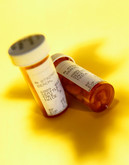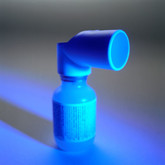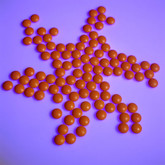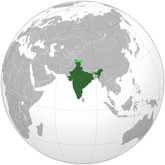Generics
Concerns over change to generics prescribing in Australia
In its 2017 budget, Australia is set to make changes that will encourage the use of generics and that are estimated could save the country AU$1.8 billion.
Generics applications under review by EMA – April 2017
Generic medicines in Europe can be approved either centrally via the European Medicines Agency (EMA) or nationally via the local regulatory body [1]. Approval by EMA takes place by using a centralized procedure. This leads to approval of the product in all 28 European Union (EU) Member States and in Iceland, Liechtenstein and Norway. At a country level, if approval in a single EU Member State only is required, this can take place using the national procedure. However, as soon as a company seeks approval in two or more Member States, a decentralized procedure or mutual recognition procedure must be used [2].
Reference pricing for generics in Switzerland
In 2016, the Swiss Federal Office for Health (FOH) planned to modify the reference pricing scheme for generics. Rather than using a copayment of 10 per cent on low-cost and a 20 per cent copayment on high-cost generics, it was to set the benchmark at the 25th percentile of the price distribution and make patients pay out of pocket for the full excess of price over this benchmark in addition to a basic 10 per cent copayment. This paper, based on an expert report commissioned by Intergenerika, the Swiss association of manufacturers and importers of generics and biosimilars, purports to answer the question of whether this modification is apt to improve the performance of the Swiss healthcare system [1].
First Advair generic launched in the US
Teva Pharmaceutical Industries (Teva) has announced the launch of AirDuo RespiClick and its authorized generic, the first competitor to GlaxoSmithKline's (GSK) best-selling asthma drug Advair in the US.
Approaches to assure quality and improve patient perceptions of generics in Japan
The rapidly ageing population in Japan has led the government to promote the use of generics in the universal health insurance system. This article provides an overview of the regulatory approaches available to confirm the quality of generics and achieve greater acceptance of these products by patients [1].
Patent challenges hit Actavis and Acorda
Teva Pharmaceuticals’ subsidiary Actavis and neurological drug specialist Acorda Therapeutics have both faced patent challenges recently over treatments for acne and multiple sclerosis, respectively.
Significant price reductions possible for new cancer drugs
Generic production could drastically reduce the prices of novel cancer drugs and make treatments accessible to thousands more people each year, according to a study by Hill et al. [1].
Indian drug industry faces setbacks in Europe and the US
The European Medicines Agency (EMA) has announced that they have recommended the suspension of generic drug approvals and drug applications of over 300 drugs. This is due to unreliable bioequivalence studies carried out by the Indian contract research firm Micro Therapeutic Research Labs.
Generics could cut costs of cancer drugs by over 99%
Generics manufacturing and import of novel cancer drugs could massively reduce their costs in the UK, according to a study by Hill et al.[1].
FDA commits to success of the generic and biosimilar second-generation user fee acts
Representatives of the Centre for Drug Evaluation and Research (CDER), the Association of Accessible Medicines (AAM), the Biotechnology Innovation Organisation (BIO) and the Biosimilars Council Director reportedly testified on 8 March 2017 as to their commitment to the US Food and Drug Administration’s (FDA) recommendations for the second generation of user fee agreements covering both generics and biosimilars.













